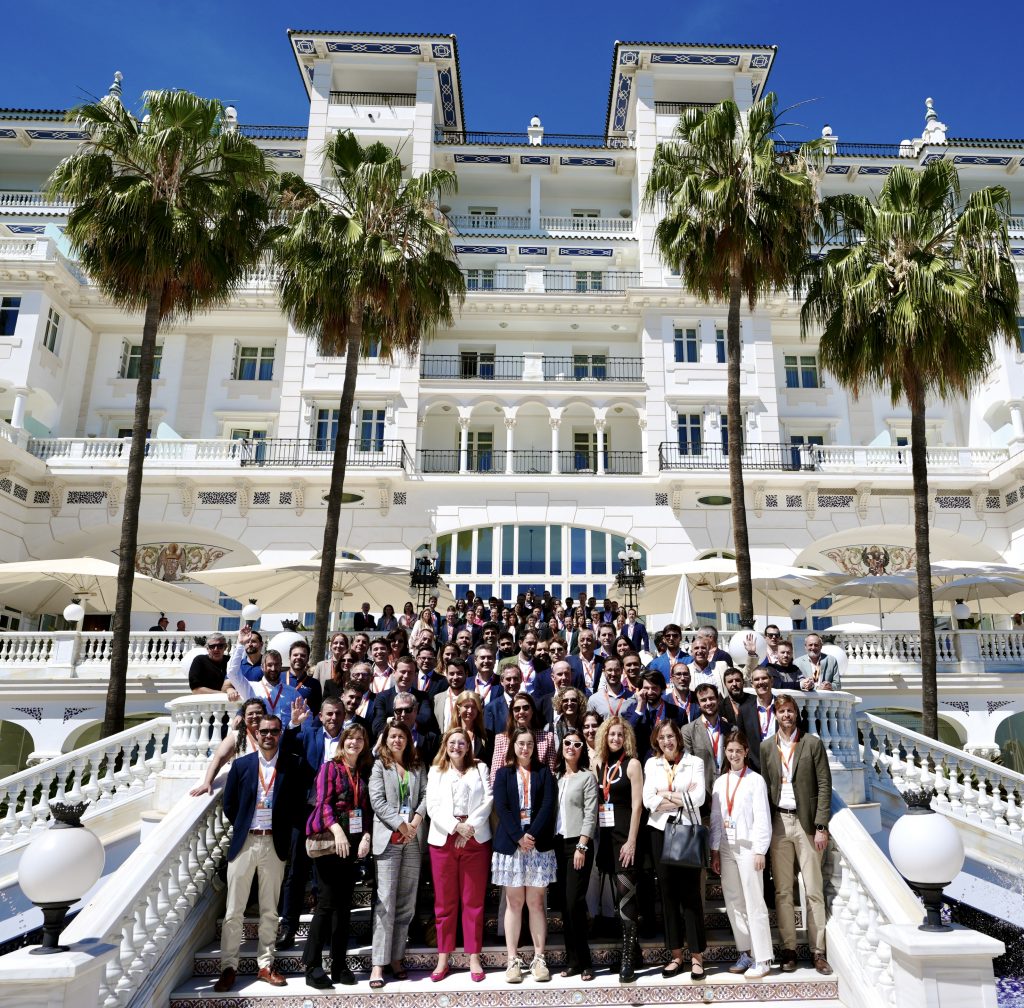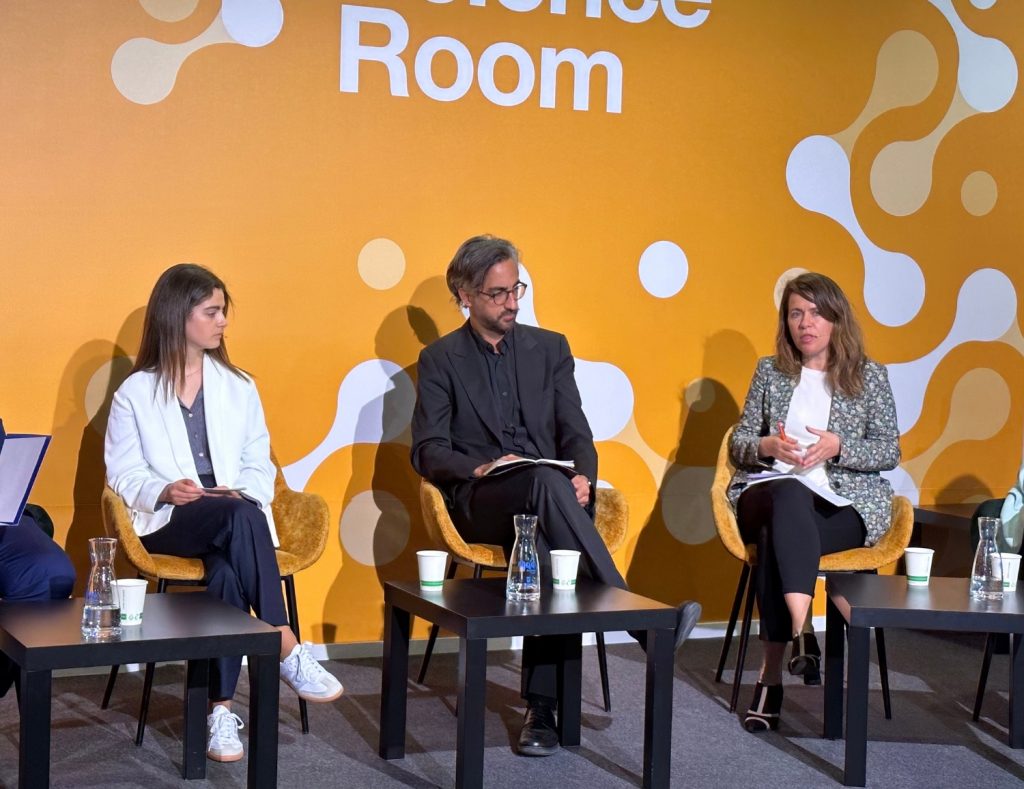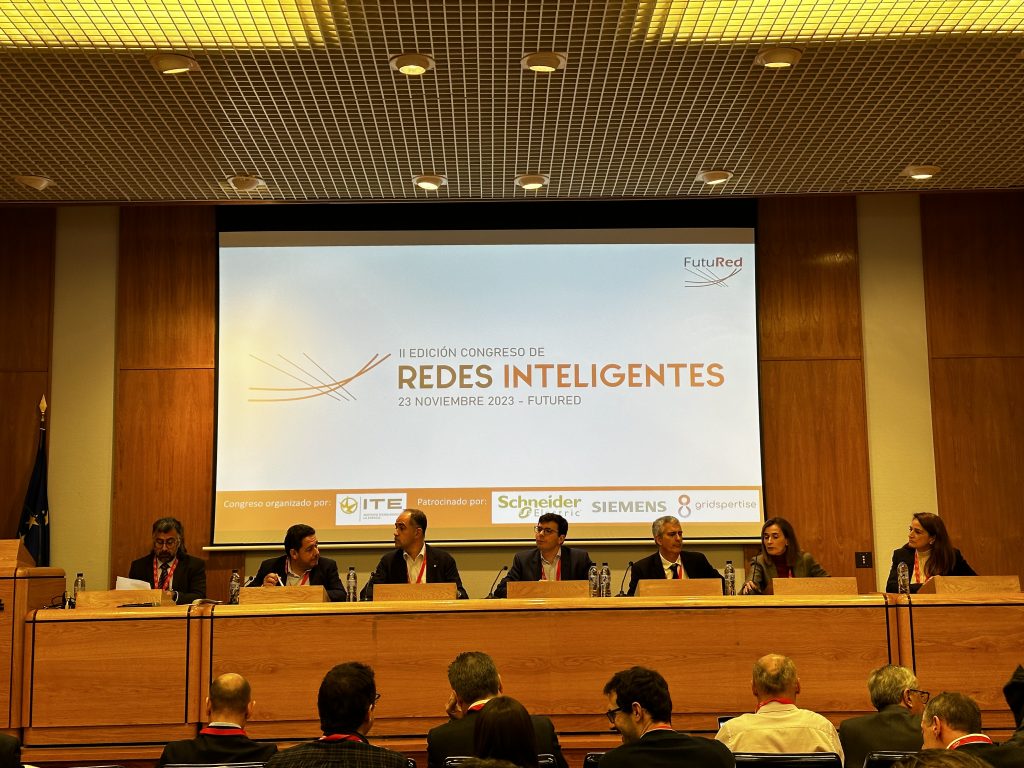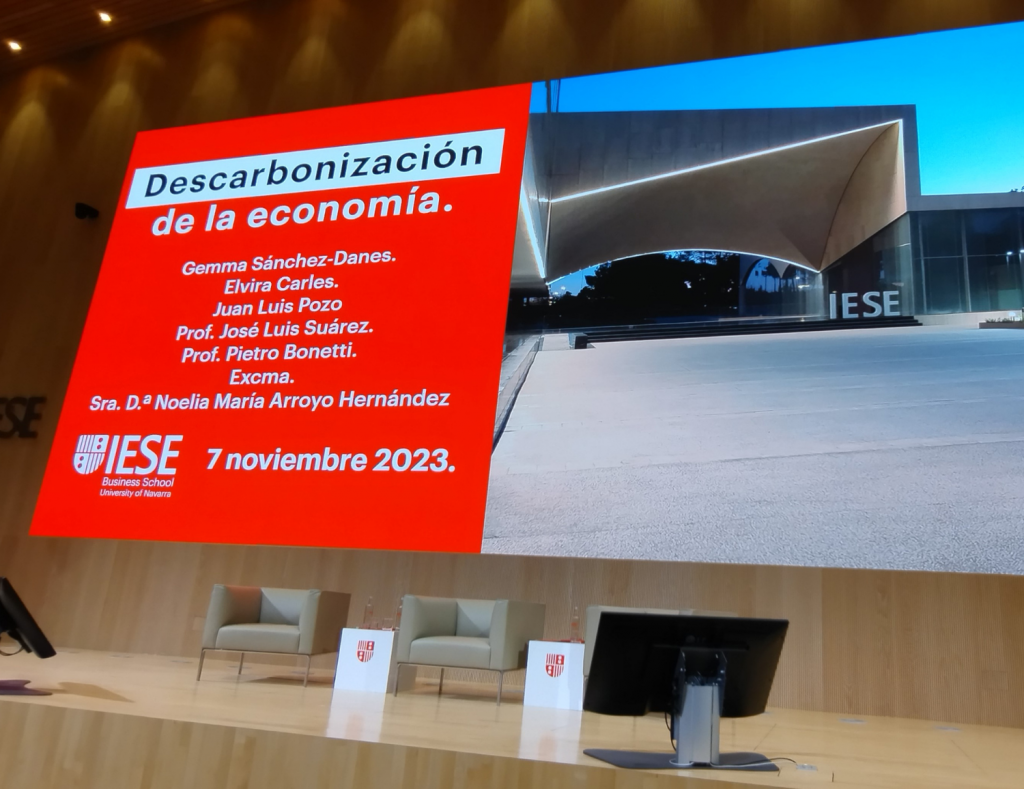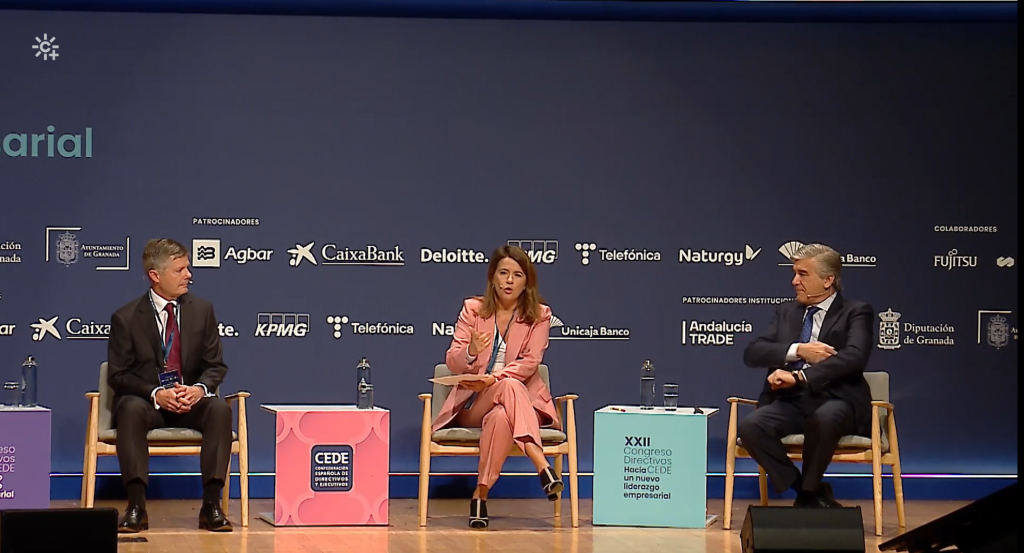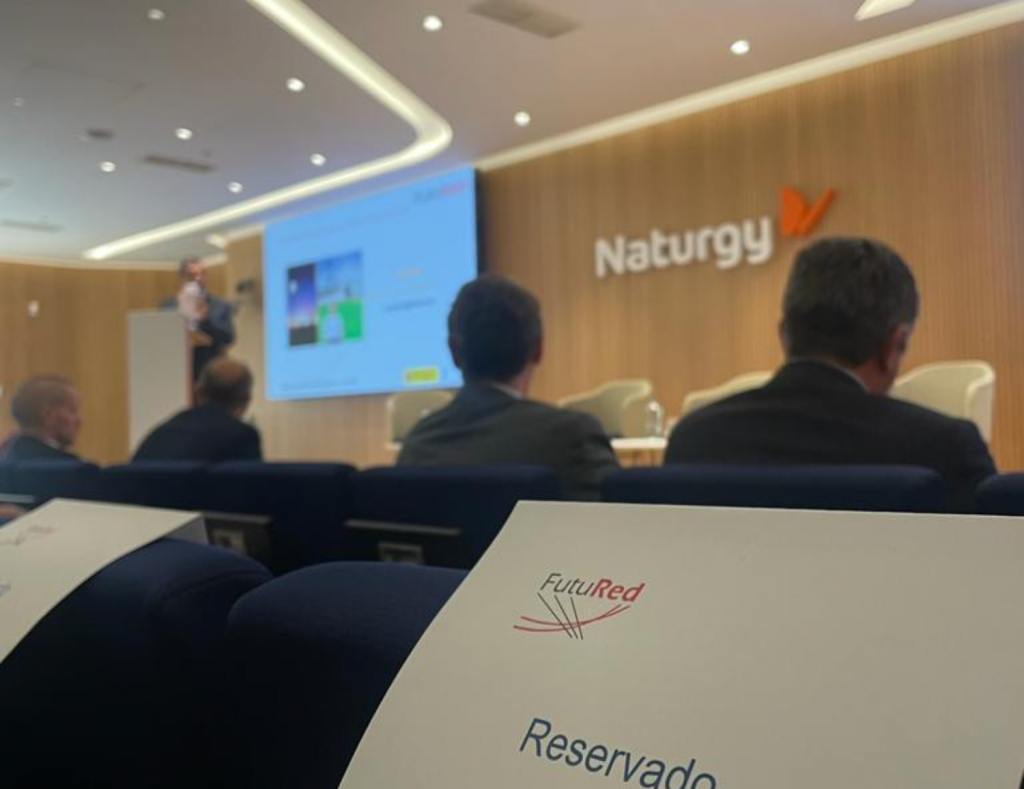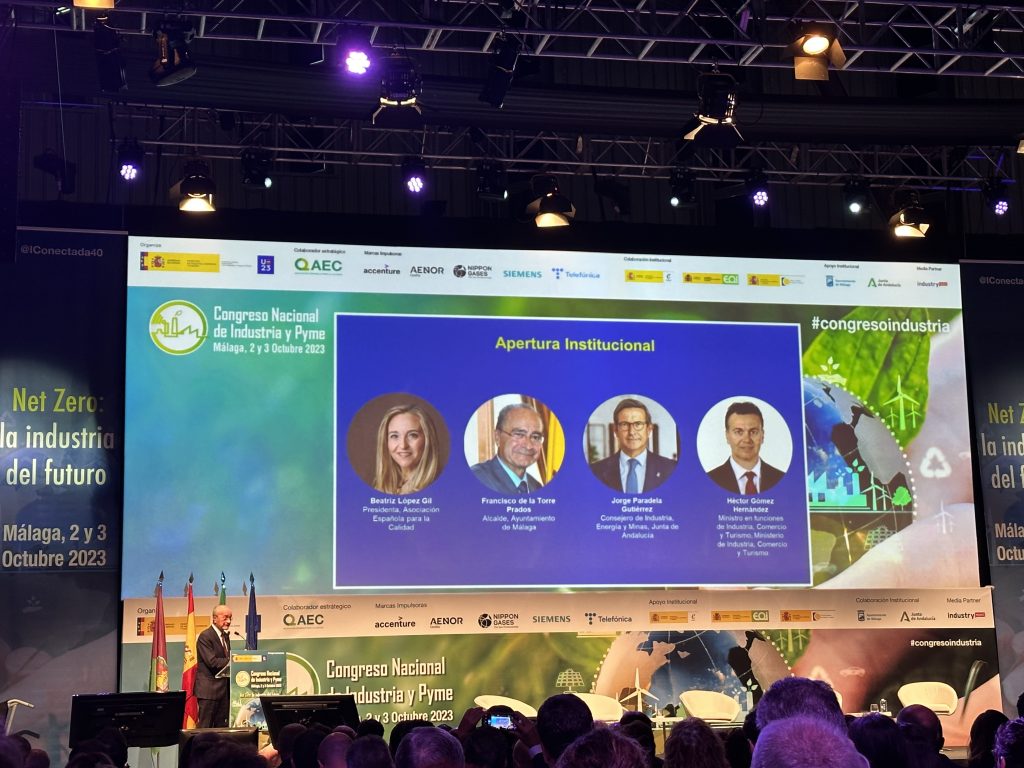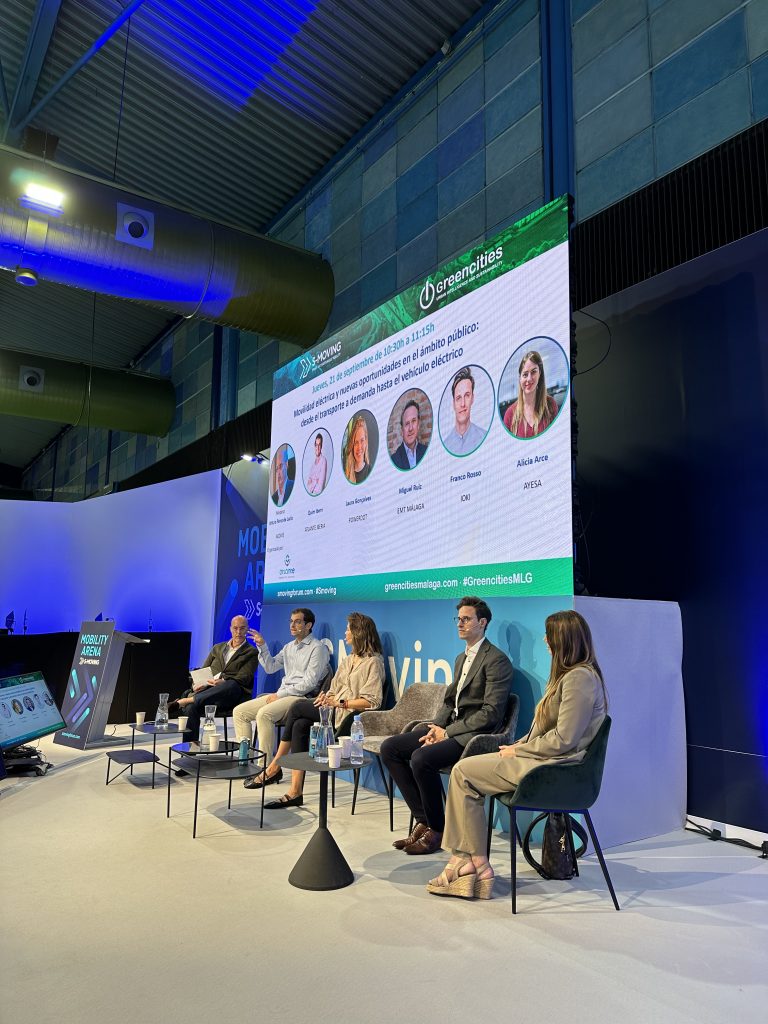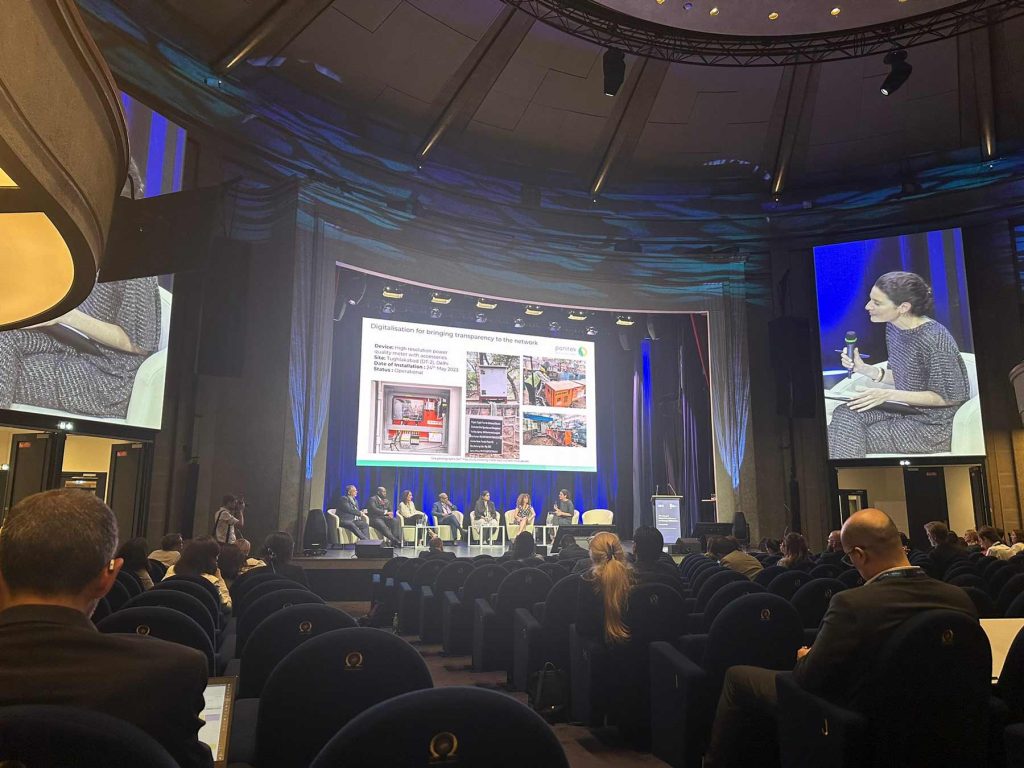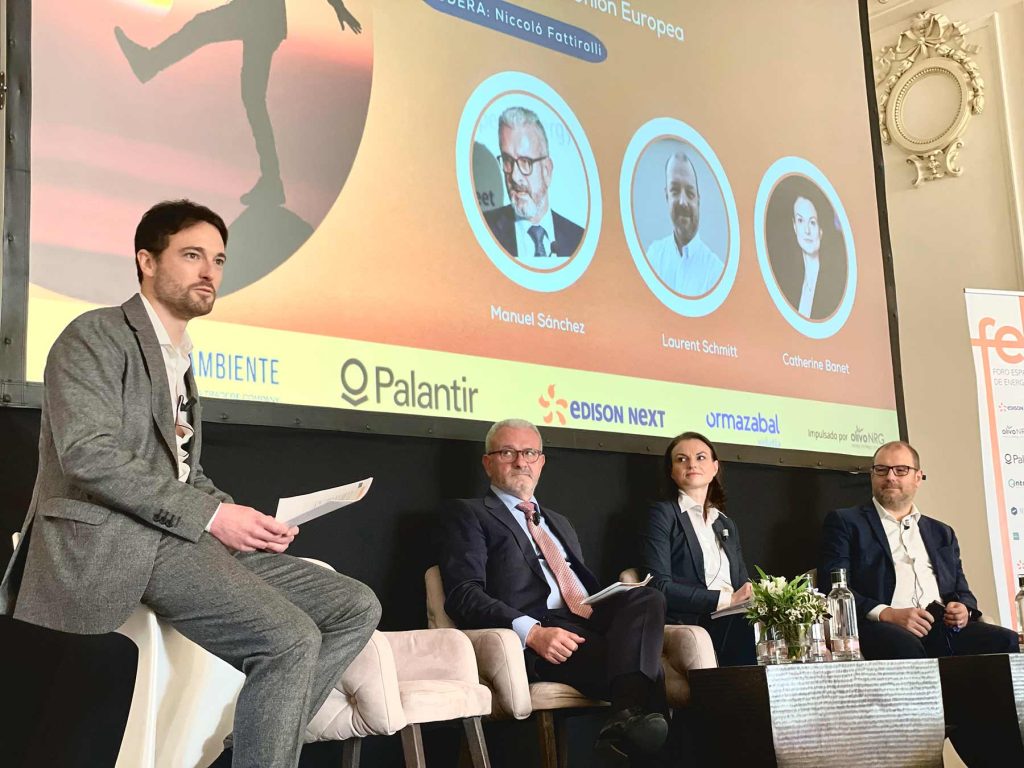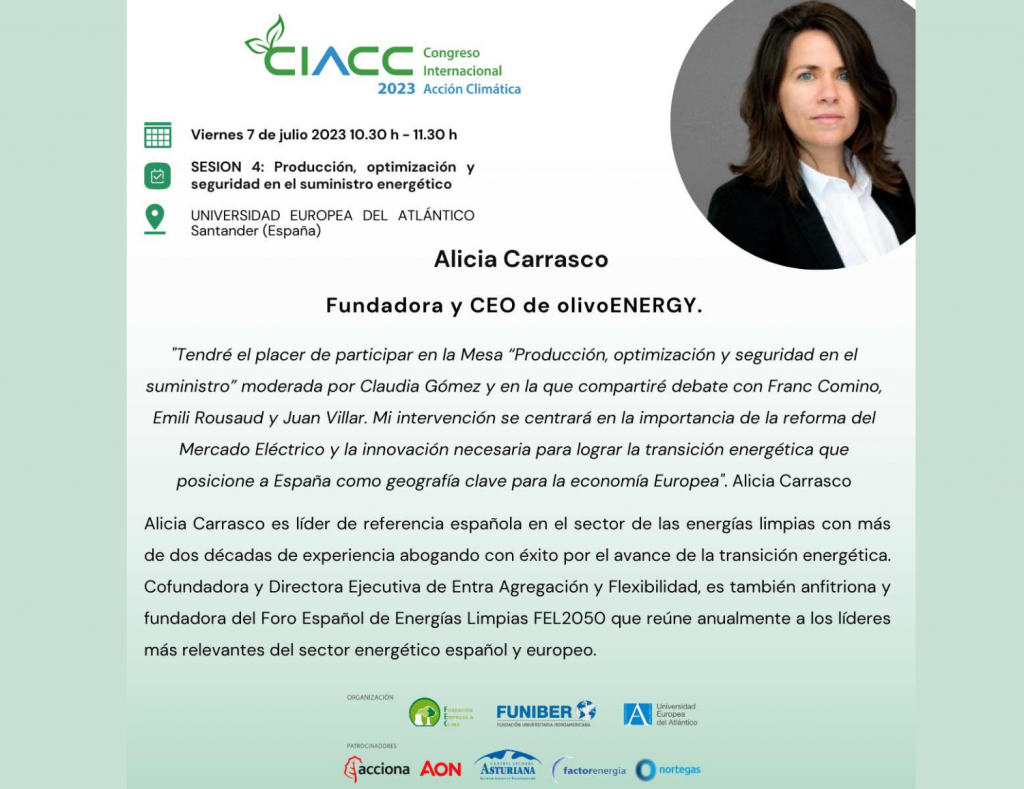The third edition of the Spanish Clean Energy Forum FEL2050 was held in Málaga on April 10. At this Forum, hosted by olivoENERGY, expert leaders from the energy sector gathered to discuss digitisation, innovation, and electric grids in Europe and Spain.
The day kicked off with a welcome speech from Alicia Carrasco, CEO of olivoENERGY, whom thanked the speakers, panelists, moderators, sponsors, and attendees for making this event a reality. Carrasco emphasized that the forum has two clear objectives:
To position as a reference meeting point where sector leaders present and promote innovative and leading projects, solutions, and implementations of the energy transition and to identify regulatory or other barriers, best practices, and recommendations that support an ambitious and agile deployment of European directives, PNIEC, and the clean, efficient, and competitive energy mix. Thus positioning Spain as a leader in the energy transition, attracting industries, investments in key energy vectors infrastructures, and strengthening the export of solutions from our business network.
‘That’s why every year when we think about organizing FEL2050, we aim to provide space to listen, debate, promote, and create proposals, ideas, and solutions. Once the forum has concluded, we want to share the key points, proposals, concerns, and solutions discussed today with the Ministerio para la Transición Ecológica, CNMC, and the industry. From olivoENERGY’s commitment to promoting the energy transition, providing regulatory, technical, and economic certainty to the most pioneering players, governments, and consumers, it is my pleasure to welcome the speakers, panelists, moderators, and all of you attending the Spanish Clean Energy Forum‘ added Carrasco,
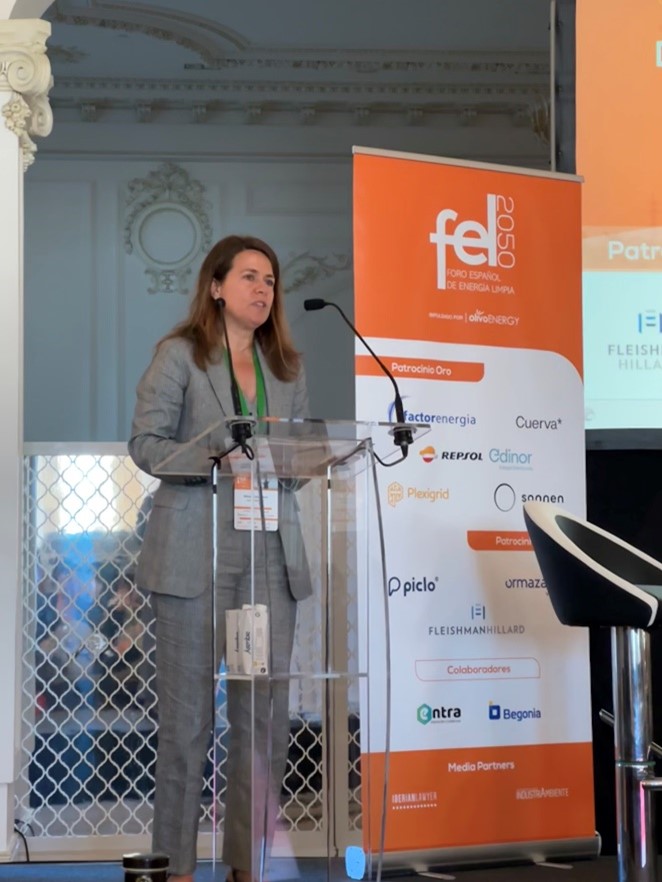
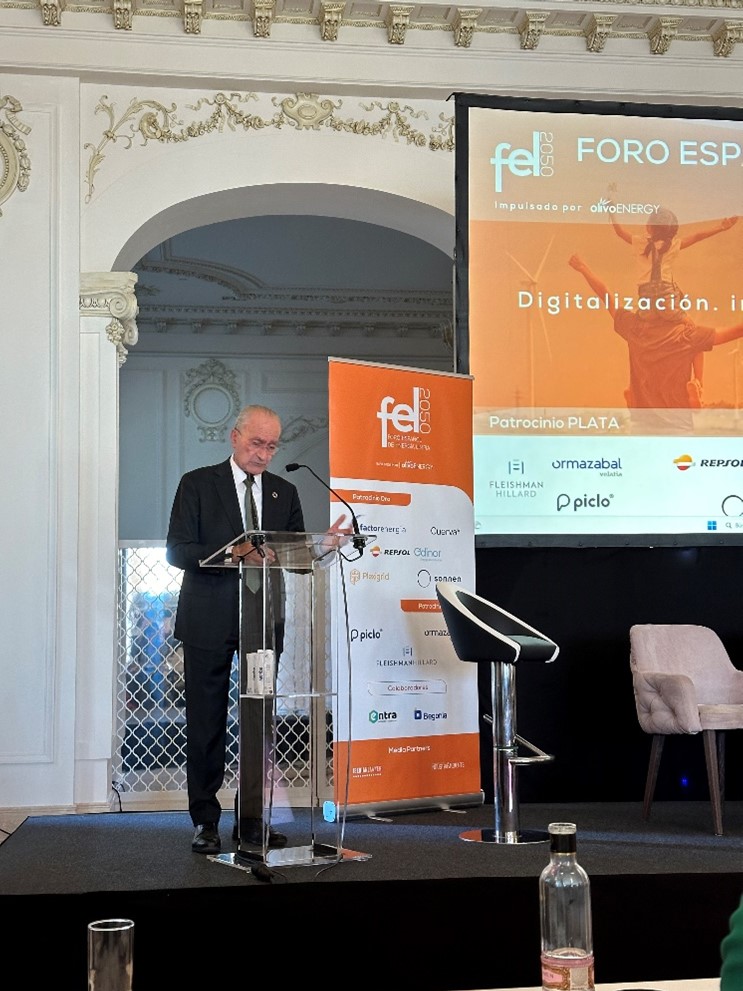
Francisco de la Torre, Mayor of Málaga, thanked olivoENERGY for hosting the forum once again in the city, emphasizing their commitment to promoting distributed generation through electromobility, energy communities, new technologies, digitization, and energy efficiency in buildings.
Following these words, Natalia Márquez, Managing Director of the Andalusian Energy Agency, continued the discourse by demonstrating how Andalusia is achieving significant challenges through renewable energies. Márquez stated that “the accumulated renewable generation capacity in the Autonomous Community reached 11,800 MW by the end of 2023, creating 53,400 jobs thanks to renewable energies.”
The region is committed to fighting climate change and ensuring a secure, continuous, and quality energy supply. As an example, she highlighted participation in European projects such as SMARTeeSTORY, REC4EU, EXCESS, and the ANDALUCIA SIMPLIFICA plan, which includes reductions in bureaucratic procedures for renewable installations.
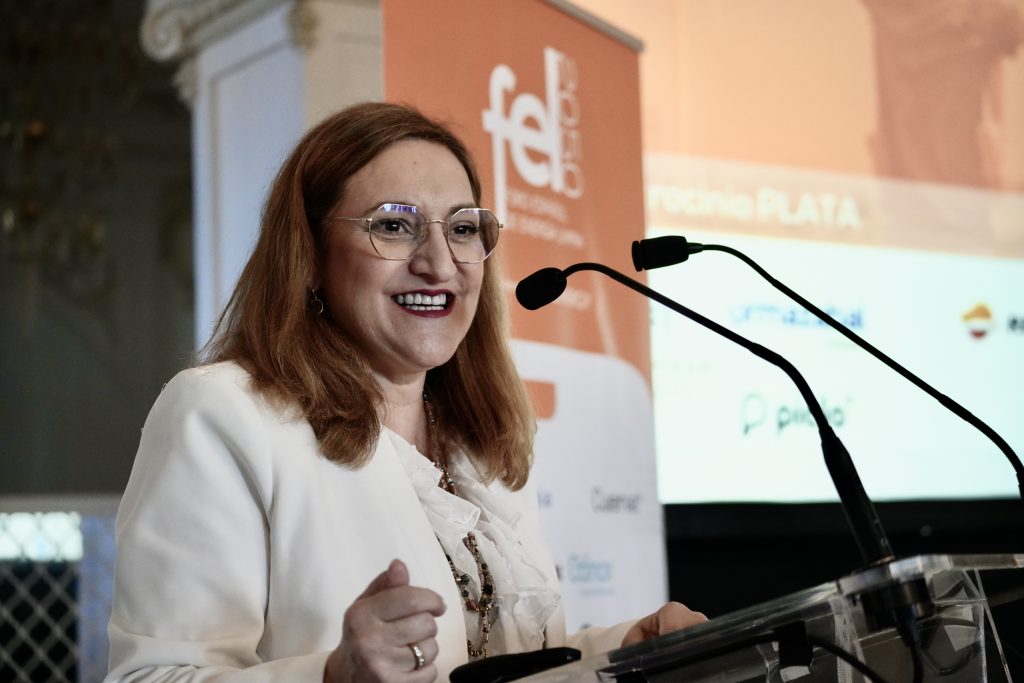
Opening Keynote
The opening keynote was delivered by Josep María Salas, Board Member of the CNMC, who shared personal reflections on how temperatures exceeding a global warming of 1.5ºC have been recorded in recent months, reminding us not to forget the climate emergency. Salas emphasized the need for networks to integrate expected renewable generation at the lowest possible cost, stating that “there is a path to follow.”
He outlined three key actions: planning, CO2 emissions, and the economy, urging reflection on planning processes and the future network to address challenges such as renewable penetration, distributed generation, increased demand, etc.
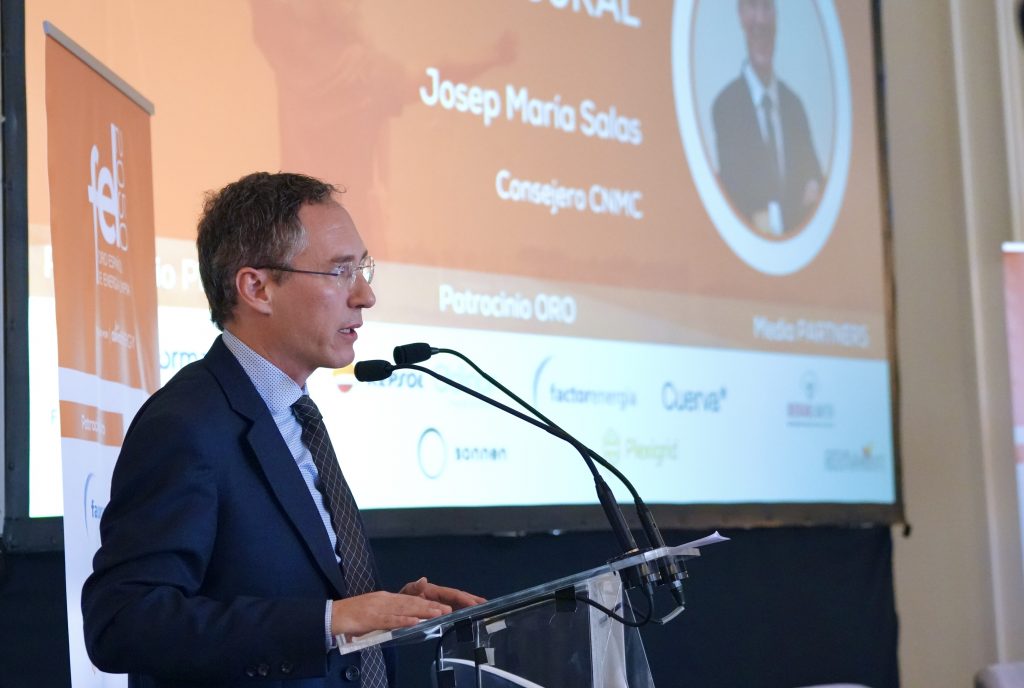
The energy trilemma has already been solved; supply security is key for society to achieve our goals as a country.
His speech left a series of questions to reflect about: do we have the capacity to connect new generation to meet forecasted demand? If the answer is yes, how do we do it? Does it make sense, and is there a need to electrify everything massively and immediately?
Additionally, Salas accurately shared that “we cannot think of installing more renewables during peak hours, as they will generate more spills. We must think of off-peak hours and cover them with renewables.” He added that “flexibility is the solution: shifting demand, installing storage, innovating with new models and technologies, avoiding sending wrong signals that consumers end up paying for, electrifying transportation, etc.”
He concluded the opening keynote by mentioning that although barriers to access to different markets need to be reduced and access to data needs to be facilitated, there is an incredible journey ahead. “There must be trust among the various system actors because, ultimately, decisions are made by people”, concluded Salas.
The Panels
The Opening Keynote gave way to the program prepared for the day which consisted of three panels that addressed different topics.
The first panel of the day, ‘The new EU landscape: digitalisation, innovation, and markets,’ moderated by Niccolò Fattirolli, CPO of olivoENERGY, and featured Manuel Sanchez from FleishmanHillard, Federica Bruni from GEODE, Andrés Pinto-Bello Gómez from SmartEn, and Emi Bertoli from the International Energy Agency.
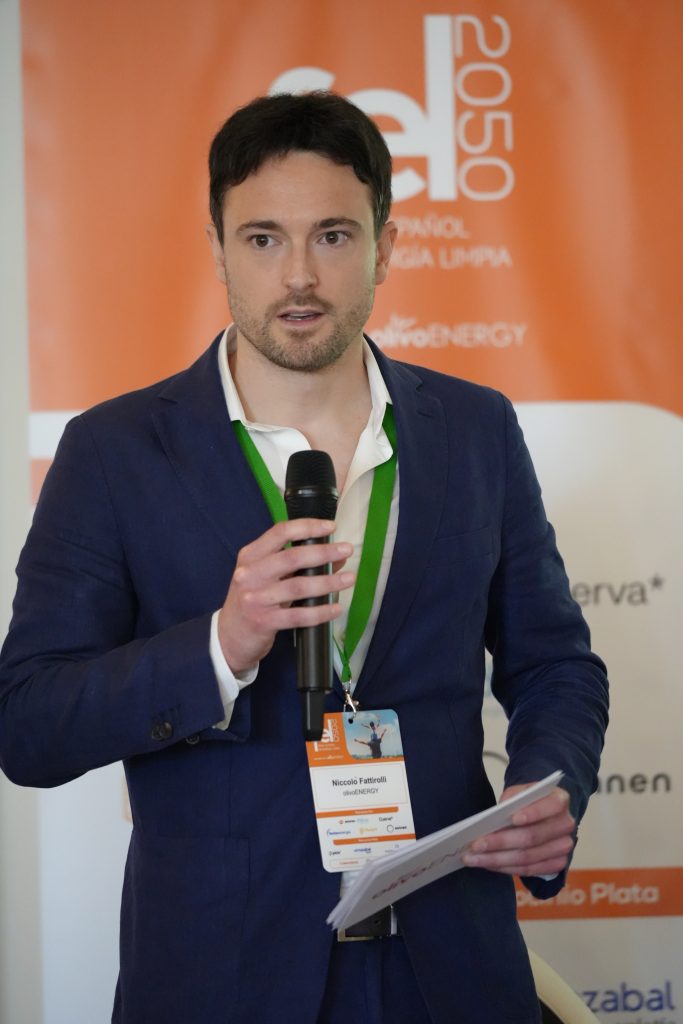
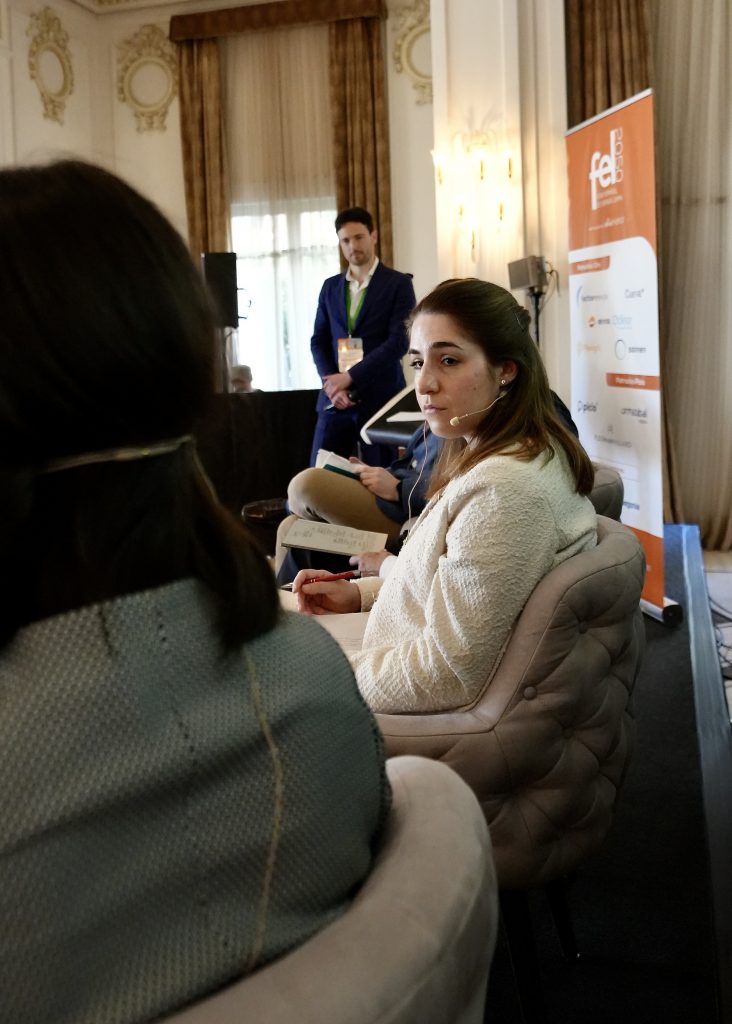
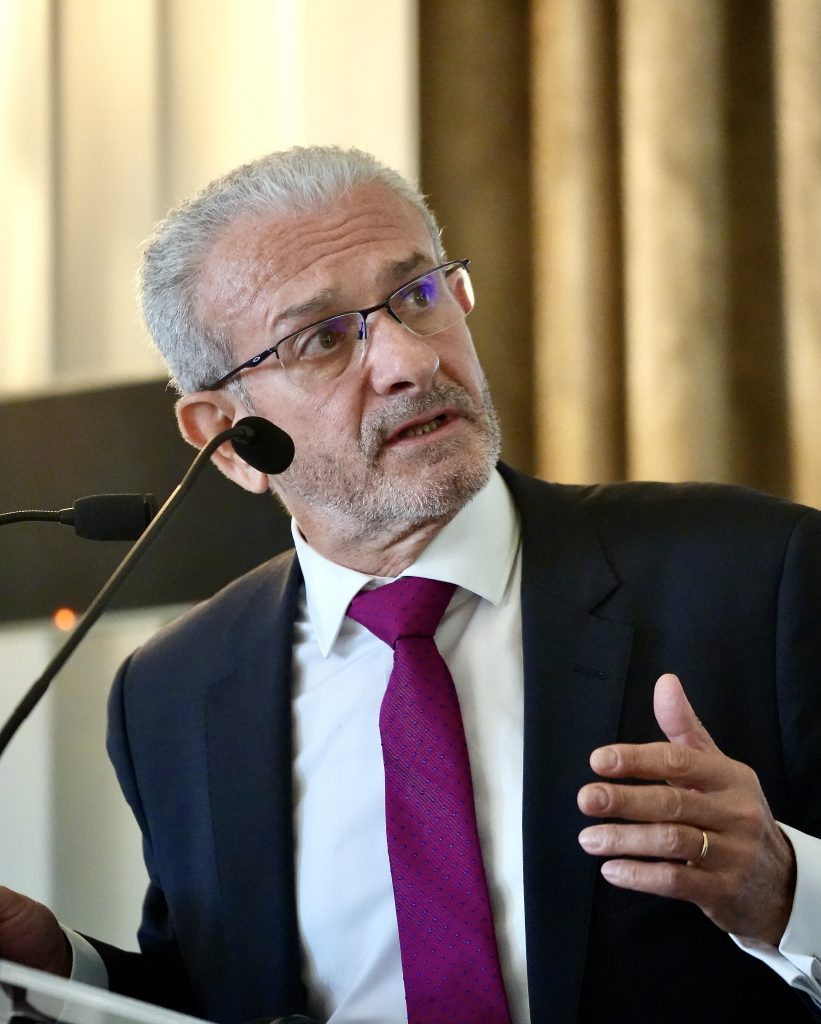
Manuel Sanchez framed the panel debate with a presentation enumerating the regulatory tsunami witnessed since 2019. Currently, there is a solid and consistent regulatory framework in the energy field. Europe has always responded to emerging problems (pandemics, crises, wars, etc.) by strengthening objectives with more ambitious regulations. Now, we are in the implementation phase. “Efforts planned for the period 2024-2029 will focus on implementing a legal framework that will remain stable during the next legislative term.” commented, Sánchez.
Following this introduction, the discussion focused on the planning needs of networks at the European level, emphasizing the urgency of creating an environment that allows for the incorporation of digital solutions, handling large amounts of data, and democratizing and standardizing consumer network participation. Andrés Pinto-Bello pointed out that we already have the technology and we just need to use it, coinciding with Emi Bertoli whom emphasised the need of digital transformation becaus through it, we will achieve greater control, planning, and visibility.
“We have very ambitious goals that must pass through the networks, and for that, collaboration between stakeholders and regulators is crucial”, outlined Federica Bruni.
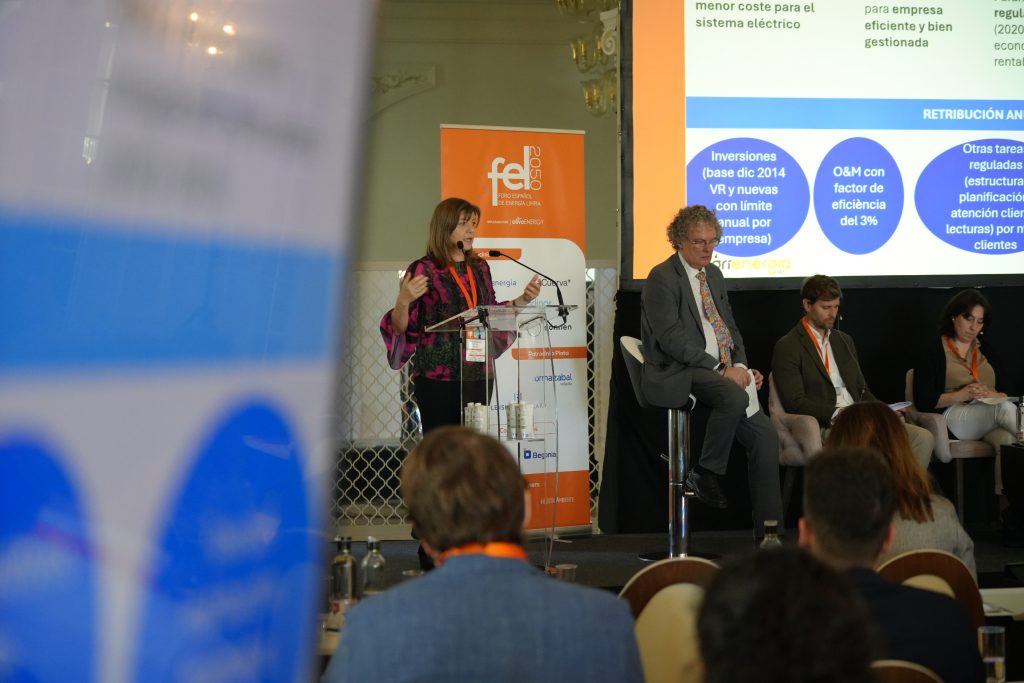
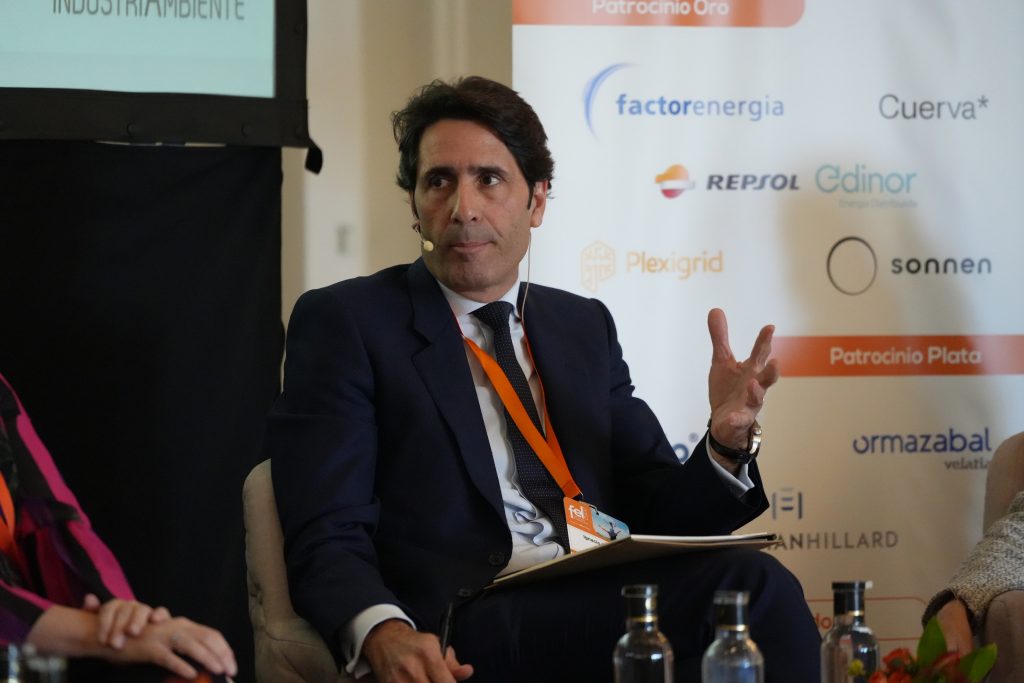
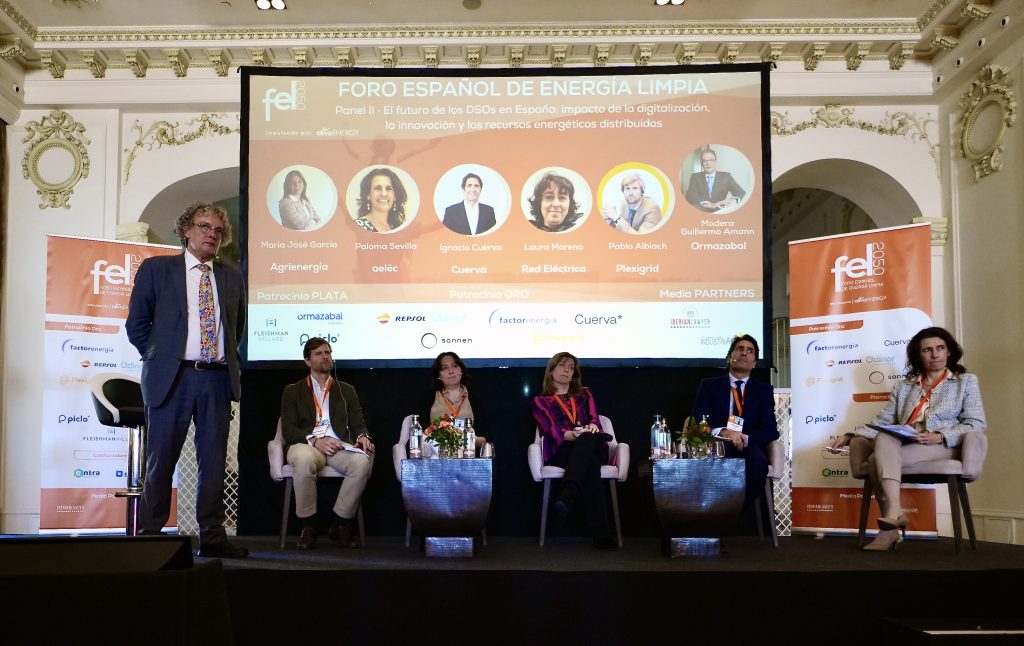
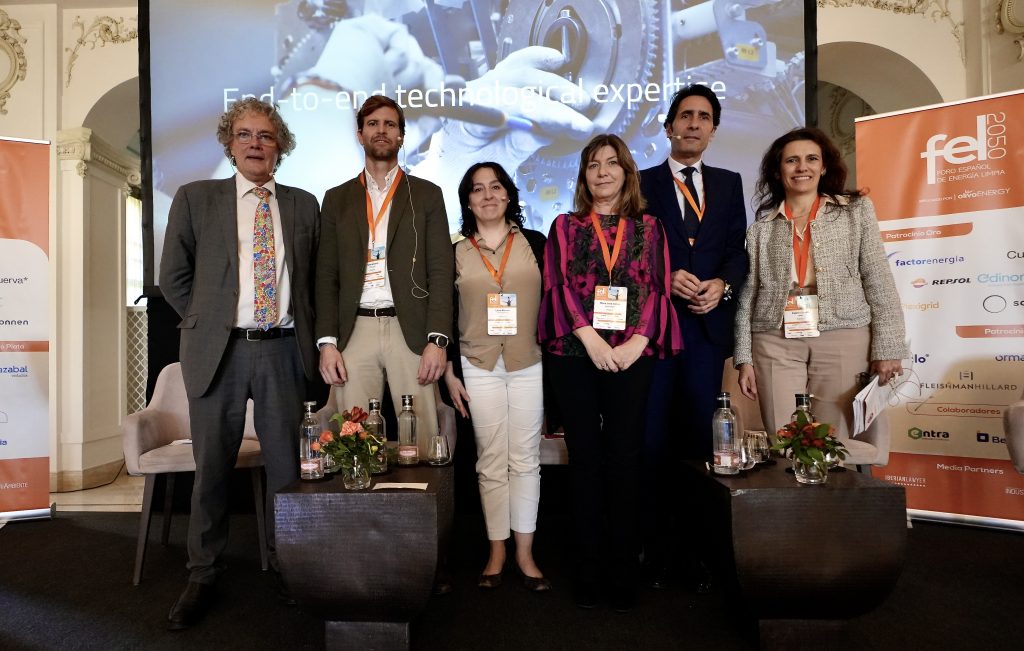
The second panel, dedicated to “The future of DSOs in Spain and the impact of digitalization, innovation, and distributed energy resources” was moderated by Guillermo Amann from Ormazabal, with speakers María José García from Agrienergía, Paloma Sevilla from aelēc, Ignacio Cuerva from Cuerva*, Laura Moreno from Red Eléctrica, and Pablo Albiach from Plexigrid.
María José García opened the debate with a presentation focused on the impact the new model will have on DSOs and networks. She outlined their role in the energy transition and summarized the main challenges, obligations, needs, regulatory framework, and expected future barriers. “DSOs must invest, transform, innovate, and manage change through a network with greater capacity, robustness, and intelligence. But these new changes should not imply variations in what we have today, which is a network of good quality and supply security.” outlined García.
Grids have gained prominence in the energy transition. DSOs are obliged to adapt to the new model by managing energy flows, demand, the network, and information. This entails a series of regulatory, financial, technological, organizational, and cultural barriers and risks.
Pablo Albiach commented that some of the real problems encountered include delays and cancellation of renewable energies, cost increases due to inflation, regulatory, logistical obstacles, and delays in project completion, whereas Paloma Sevilla outlined that there is no roadmap for networks detailing specific measures. Laura Moreno, added that collaboration between DSOs and TSO is a reality. Currently, it is through messages, but the enablement of specific virtual platforms is expected.
“Digitalisation, depending on who says it, can mean different things. It is a broad concept that needs to be specified” commented” reflected Ignacio Cuerva.
Inspirational Keynote
At the end of the second panel, Joan Groizard, General Director of IDAE, delivered an inspirational keynote that sparked an interesting debate. “The administration is always asked, but is it the administration’s role to innovate? Or, on the contrary, is it companies that should do it?” He also left other questions such as: What signals are needed for investors to continue renewable energy projects? What signals are needed for demand to electrify? Or, what kind of signals do we introduce to make them optimal for the system?
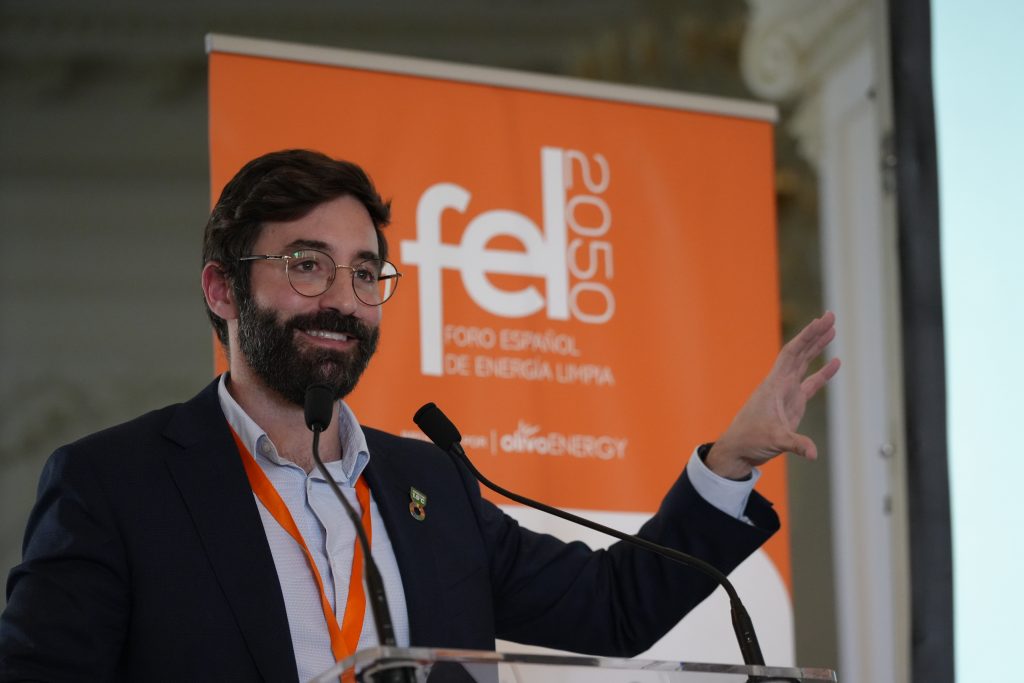
We must act. The energy transition influences our daily lives. Climate change is taking us into uncharted territory that we have to discover.
The panel III, “New actors, assets, and business models. Opportunities in the Spanish market,” was moderated by Joan Herrera, Samso, and Director of Energy at El Prat, featuring presentations by Carmen Becerril from OMEL, Cristina Corchero from Bamboo Energy, Emilio Rousaud from Factor Energía, Iker Marino from Edinor, and Franc Comino from sonnen Ibérica.
The panel opening was led by Carmen Becerril with a presentation providing relevant data on the Spanish electricity market, referencing the price volatility. We have transitioned from prices of €20/MWh in 2020, to over €200/MWh in 2023, and now negative prices in 2024. “Nothing is worth zero, everything is worth something,” mentioned Becerril, referring to how both very low and very high prices are not good for the system. “The market currently provides the appropriate price signals to promote flexibility.”
The debate was facilitated by Joan Herrera, who asked panelist and attendees, “What buttons need to be pressed to find the right solution?”
We would like to outline some of the thoughts and reflexions shared by the panelists: Emilio Rousaud commented that “the use of distributed generation implies less investment in the grid and can even free up capacity in it.” Iker Marino, added that the first step may be to provide services to react to wholesale market prices through domestic users, once mobility and heating are electrified whereas Cristina Corchero outlined the importance of creating a regulatory framework that attempts to ensure that investments in transition energy business models have certainty. Franc Comino wanted to emphasise that the administration must provide signals through tax reductions or deductions to unlock storage, EVs, electrification, and renewable generation.”
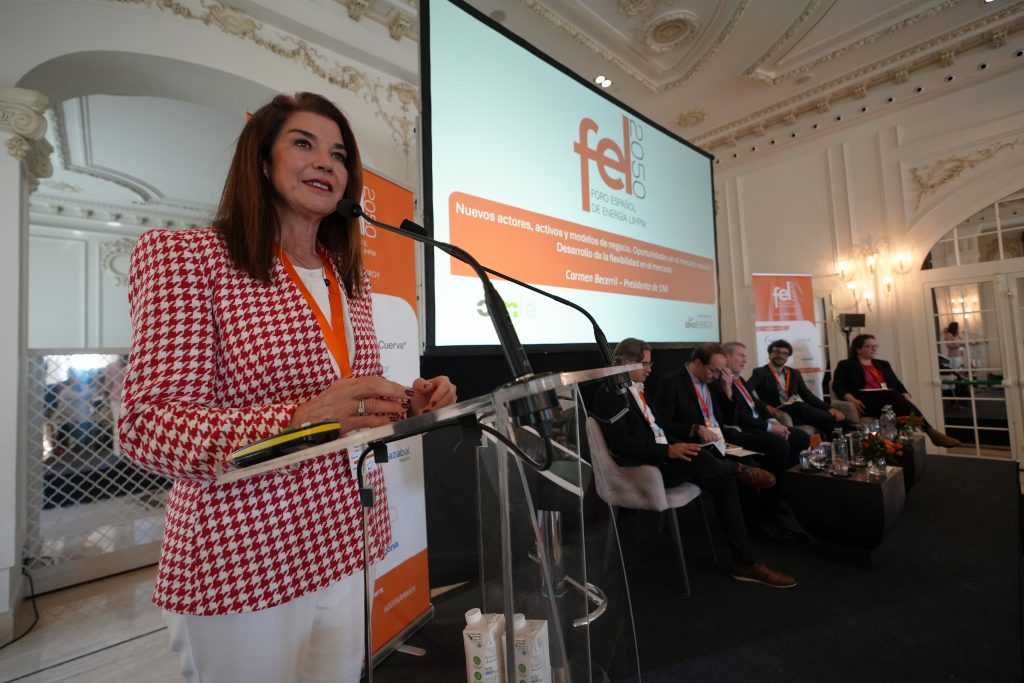
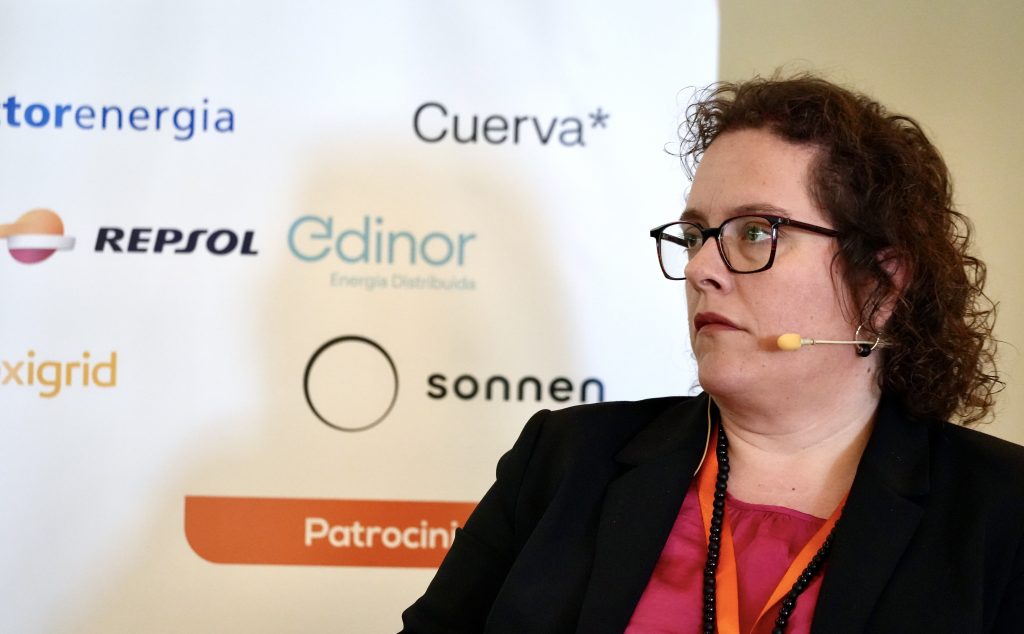
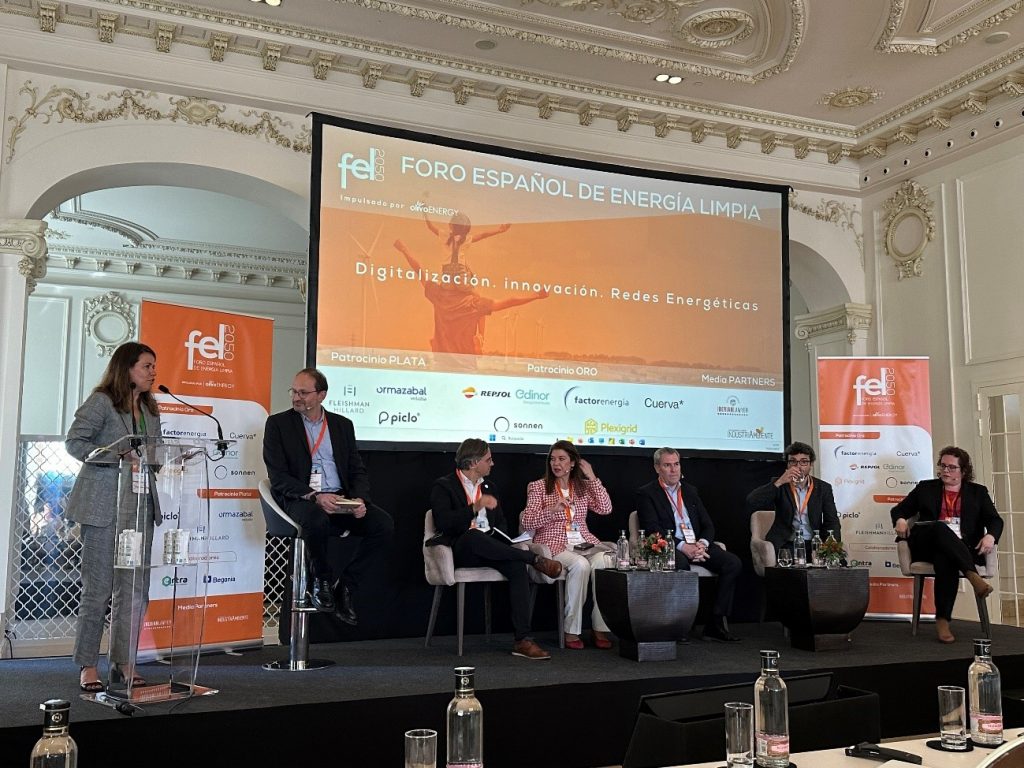
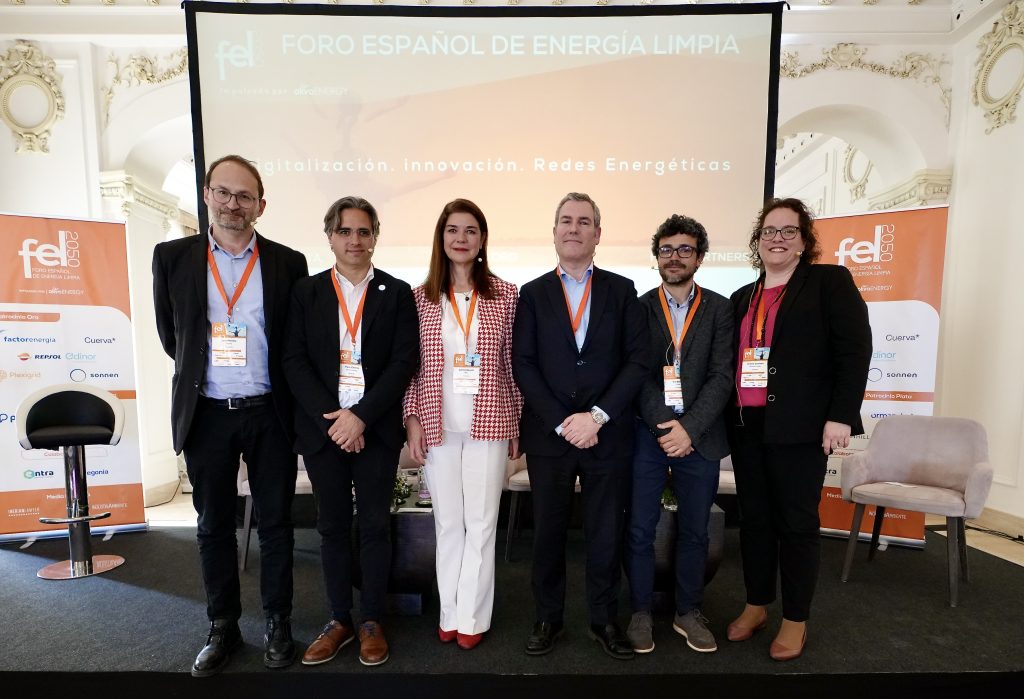
Closing Keynote
FEL2050 concluded with the Closing Keynote by Daniel Pérez, Director of L’Energètica and author of the book ‘La superpotencia renovable’ outlining the problems Spain is facing: volatile energy prices, climate emergency, and energy dependence and the solutions that we can implement.
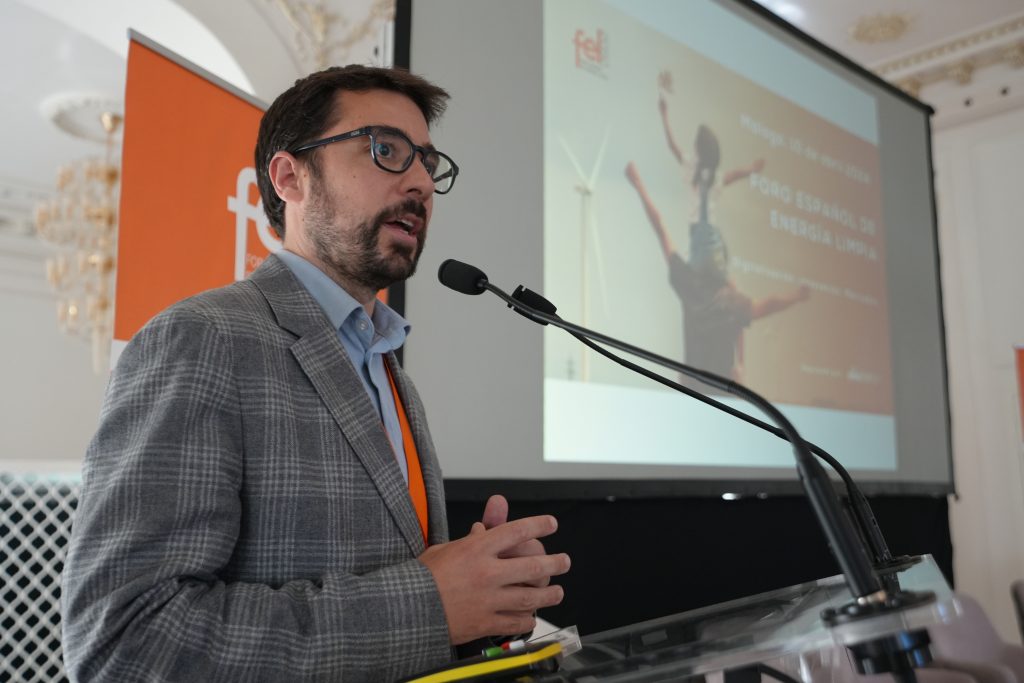
The solutions involve consuming less, installing more renewables, using storage, demand management, electrification and renewable hydrogen.
From the olivoENERGY team we specially would like to thank the commitment of our sponsors, Repsol-Edinor, Factor Energía, Cuerva*, sonnen Ibérica, Plexigrid, FleishmanHillard, Ormazabal and Piclo , whose support has made this meeting a reality.
Thanks to the association ENTRA Aggregation and Flexibility and Begonia for their collaboration and to our Media Partners Iberian Lawyer and Industriambiente for their support in the dissemination.
Last but not least, we would like to extend our gratitude to the speakers and panelists for their involvement and generosity and to the attendees that wanted to accompnay us on this day contributing to make it a momorable one.
We have ahead of us an exciting journey. Let’s boost the energy transition in our country and in Europe!
Looking forward to meeting you again at the next edition of FEL2050!!
